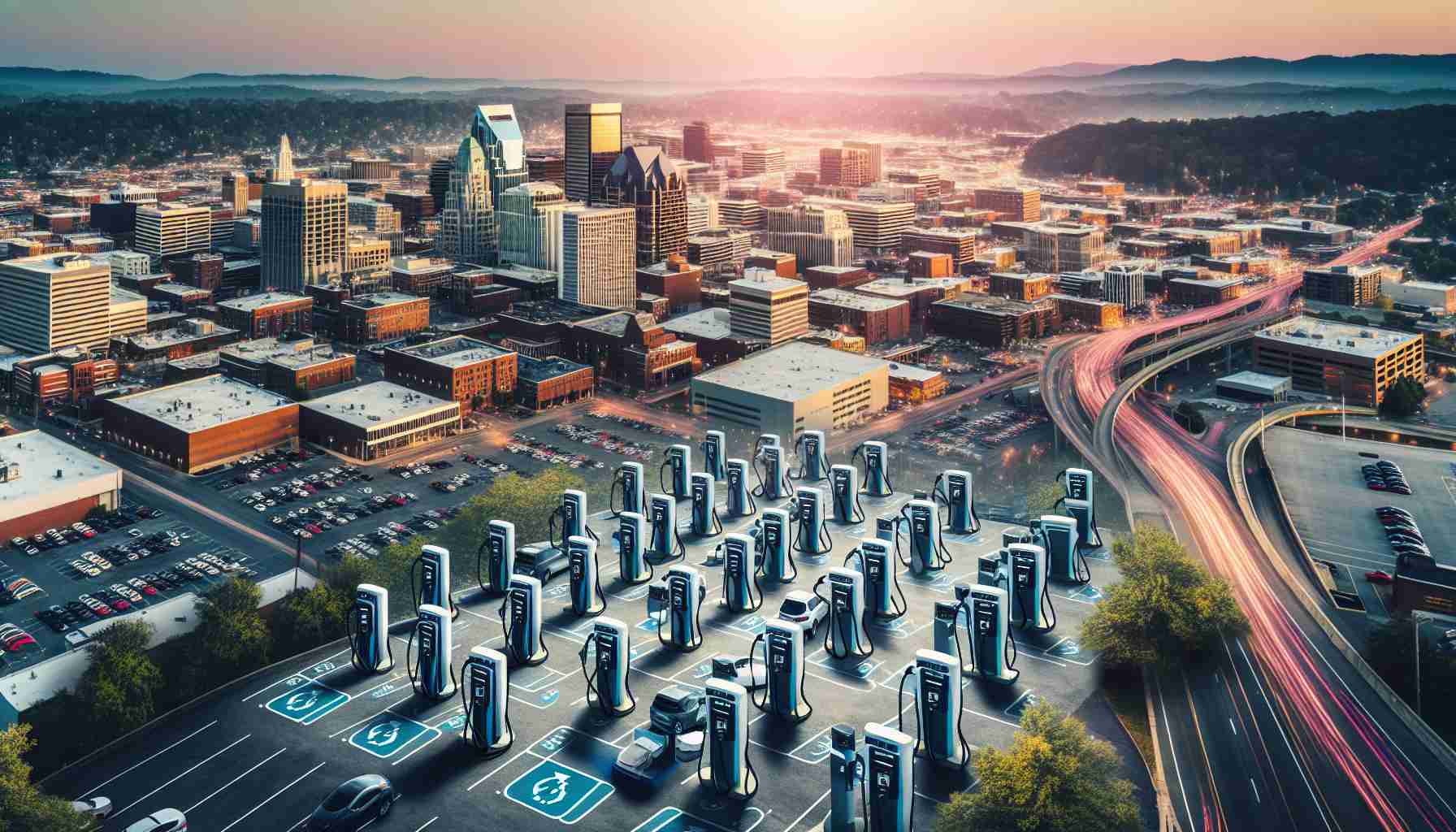City Teams Up for Sustainable Transportation
In a pioneering move towards a greener future, the City of Knoxville has officially joined the Charging Smart initiative, a program endorsed by the U.S. Department of Energy. This ambitious effort aims to reduce obstacles for electric vehicle (EV) adoption, making it easier for residents and visitors alike to transition to cleaner transportation options.
Knoxville’s Mayor, Indya Kincannon, emphasized the city’s commitment to enhancing sustainability and improving air quality. She highlighted that investing in EV infrastructure is crucial for the city’s environmental goals and for supporting those who rely on electric vehicles. She expressed optimism that being part of the Charging Smart community will propel Knoxville forward in adopting innovative EV technologies, positioning the city as a leader in electric vehicle initiatives across Tennessee.
Importantly, this membership comes at no cost to Knoxville, as it is fully funded by the Department of Energy. While specific plans for expanding the EV charging network remain undisclosed, the city currently operates 40 public chargers and is planning to install an additional 30 chargers specifically for government use at the City County Building.
In 2022, Knoxville’s Office of Sustainability introduced tools to help residents locate nearby charging stations. In conjunction with the DOE’s online platform, these resources aim to facilitate the transition to electric cars for a more sustainable community.
Implications of Knoxville’s Sustainable Transportation Initiative
Knoxville’s recent alignment with the Charging Smart initiative catalyzes a broader movement toward sustainability that could have profound implications for both the local and global landscape. By investing in electric vehicle (EV) infrastructure, the city is not only addressing immediate transportation needs but is also contributing to global efforts aimed at reducing greenhouse gas emissions. As EV adoption surges globally, cities that prioritize such initiatives may gain a competitive edge in attracting eco-conscious residents and businesses.
This shift also signals a cultural awakening toward sustainability, particularly among younger generations who value environmental responsibility. In the era of technology and connectivity, a city committed to reducing its carbon footprint can become a beacon of innovation. By positioning itself as a hub for eco-friendly practices, Knoxville improves its image and potentially draws investments into green technology sectors.
From an environmental perspective, enhancing EV infrastructure will likely result in reduced air pollution and healthier urban ecosystems. Studies have shown that widespread electric vehicle usage can lead to a significant decrease in harmful emissions, contributing to better public health outcomes.
As Knoxville forges ahead, its commitment to electrification may inspire other municipalities to follow suit, creating a domino effect that can inflect both local and global sustainability efforts. The potential for this initiative to influence future transportation trends, governmental policies, and urban planning strategies underlines its long-term significance in the fight against climate change.
Knoxville Leads the Charge in Sustainable Transportation: What You Need to Know
Knoxville’s Commitment to Sustainable Transportation
The City of Knoxville has officially joined the Charging Smart initiative, a program backed by the U.S. Department of Energy, reflecting a significant commitment to sustainable transportation. This initiative is designed to facilitate the transition to electric vehicles (EVs) by reducing barriers to adoption, ultimately aiming to enhance air quality and promote a greener urban environment.
Key Features of the Charging Smart Initiative
1. No Cost for Participation: Knoxville’s participation in the Charging Smart program is fully funded by the Department of Energy, ensuring that the city can enhance its EV infrastructure without incurring additional costs.
2. Existing Charging Infrastructure: Currently, Knoxville operates 40 public EV chargers. The city has ambitious plans to install an additional 30 chargers at the City County Building specifically for government use, showing a strong institutional commitment to electric vehicle support.
3. Additional Resources for Residents: In 2022, the Office of Sustainability launched tools to help residents find nearby charging stations. These resources, combined with the DOE’s platforms, make it easier for residents to shift to electric vehicles.
Use Cases and Community Impact
The Charging Smart initiative is expected to benefit various demographics in Knoxville:
– Daily Commuters: Increased access to charging stations will make electric vehicles a more viable option for daily commutes, reducing reliance on fossil fuels.
– Tourists and Visitors: Tourists looking for sustainable travel options will find the expanded charging infrastructure appealing, promoting eco-friendly travel practices in the city.
– Government Fleet: The planned chargers specifically for governmental use demonstrate how local government can lead by example in adopting cleaner transportation methods.
Market Analysis
As cities across the United States ramp up efforts to support electric vehicles, Knoxville’s proactive approach places it at the forefront of this growing market trend. With increasing awareness of environmental issues, cities with strong EV infrastructures may attract more businesses and residents who prioritize sustainability.
Pros and Cons of Knoxville Joining Charging Smart
Pros:
– Improved access to EV charging, encouraging more residents to switch to electric vehicles.
– Environmental benefits from reduced emissions.
– No financial burden on the city due to federal funding.
Cons:
– Initial uncertainty about the specific expansions of the charging network could leave residents uninformed.
– Dependence on federal funding may complicate future local initiatives if federal support changes.
Innovations in Electric Vehicle Technology
The initiative not only supports existing EV infrastructure but is also poised to propel Knoxville toward adopting innovative technologies in electric vehicle management and energy use. This includes smart charging systems and potential integration with renewable energy sources.
Looking Ahead: Predictions for Electric Vehicle Adoption in Knoxville
With its new commitment to the Charging Smart initiative, Knoxville is likely to see a rise in electric vehicle adoption over the next few years. As infrastructure improves and more residents become aware of the benefits of EVs, the city is positioned to become a leader in sustainable transportation solutions in Tennessee.
Conclusion
Knoxville’s participation in the Charging Smart initiative symbolizes a crucial step towards sustainable urban transportation. By improving EV infrastructure, the city aims to enhance both environmental conditions and the quality of life for its residents, setting a benchmark for other cities to follow.
For more information about sustainable initiatives, you can check Knoxville’s official website.


















